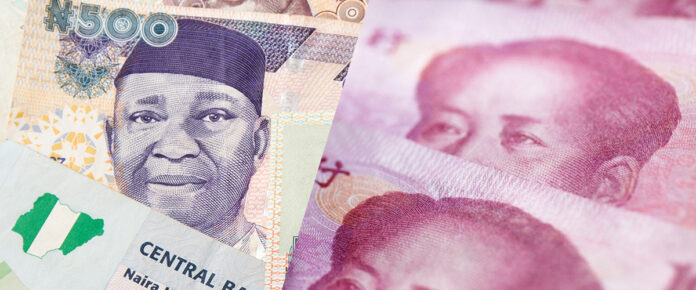Nigeria and the People’s Republic of China have reaffirmed their commitment to enhancing flexible and diverse regional monetary and financial cooperation, such as local currency swaps, to facilitate trade between the two nations and contribute to global financial stability.
This commitment was highlighted in a joint statement issued during President Tinubu’s official visit to China, reflecting the broad consensus reached by both countries.
In 2018, the Central Bank of Nigeria (CBN) signed a bilateral currency swap agreement with the People’s Bank of China (PBoC) valued at approximately $2.4 billion. However, the implementation of this agreement has faced challenges, primarily due to trade imbalances between the two nations.
Additionally, both countries agreed to strengthen international cooperation on financial intelligence related to anti-money laundering and countering the financing of terrorism (AML/CFT). They expressed support for Nigeria’s efforts to safeguard the order of its financial and foreign exchange markets and to combat financial crimes, including money laundering.
During the signing of a series of partnership agreements and Memorandums of Understanding (MoUs), both sides pledged to foster stronger relations between Chinese and Nigerian provinces, states, and municipalities, aiming to expand and deepen cooperation at the sub-national level.
They also committed to protecting the lawful rights and interests of each other’s citizens within their respective territories and creating a favourable business environment for each other’s companies.
As China welcomed Nigeria’s efforts to expand trade between the two countries, both sides agreed to work together to fully leverage Nigeria’s geographical and developmental advantages in West Africa. This collaboration aims to establish flagship projects on cross-national and cross-regional cooperation in Africa.

President Tinubu’s visit to China was at the invitation of President Xi Jinping, where he also attended the Beijing Summit of the Forum on China-Africa Cooperation (FOCAC).
During their discussions, the two presidents acknowledged that both countries stand at a new historical juncture as significant representatives of major developing nations and emerging economies. They agreed that their enhanced strategic cooperation would inject new momentum into China-Africa relations in the modern era and unite the Global South for collective progress.
To further solidify mutual trust, expand cooperation, and strengthen coordination, the two presidents agreed to elevate the China-Nigeria relationship to a Comprehensive Strategic Partnership and build a High-level China-Nigeria Community with a shared future.
The joint statement emphasized that Nigeria and China are on a path of seeking strength through unity for mutually beneficial cooperation. Both nations reaffirmed their firm support for each other’s core interests and major concerns, particularly regarding sovereignty and territorial integrity.
China expressed its commitment to supporting Nigeria’s Renewed Hope Agenda and the nation’s efforts to maintain national unity, peace, security, social stability, and economic development. In return, Nigeria reaffirmed its adherence to the one-China principle, recognizing that the People’s Republic of China is the sole legal government representing all of China, with Taiwan as an inseparable part of China’s territory.
“Nigeria opposes any form of ‘Taiwan Independence’ or interference in China’s internal affairs and firmly supports all efforts by the Chinese government to achieve national reunification,” the statement added.
Both countries praised the role of FOCAC in enhancing the quality of cooperation between China and Africa over the past 24 years. They agreed that the successful convening of the Beijing Summit of FOCAC marks a new chapter of unity and cooperation between China and Africa.
Nigeria and China reiterated their firm support for each other’s independent pursuit of a development path that aligns with their national interests and committed to further strengthening exchanges on governance experiences.




